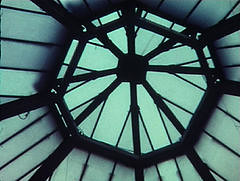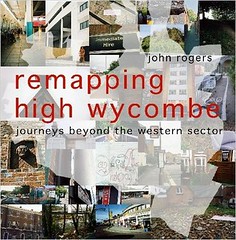psychogeography: some notes and definitions
There are nearly as many versions of psychogeography as there are practitioners. “Psychogeography - as noted by Guy Debord, is a concept with "a rather pleasing vagueness".
In a recent conversation between Iain Sinclair and Will Self they both came up with differing definitions. Self’s question to Sinclair was “So how would you describe your variety of psychogeography, because I always understood it in the manner explained by Guy Debord and the Situationists rolling around drunk on the Rue Mouffetard?” Sinclair answered by explaining that it was a convenient way of linking up his work on Nicholas Hawksmoor, leys lines, and what he called “nodules of energy”. This modern post-Situationist flavour of psychogeography has been referred to as ‘neo-psychogeography’.
Here are a few basic definitions and notes that may shed a bit more light on the matter
psychogeography: The study of the specific effects of the geographical environment (whether consciously organized or not) on the emotions and behavior of individuals.
dérive: A mode of experimental behavior linked to the conditions of urban society: a technique of rapid passage through varied ambiances. The term also designates a specific uninterrupted period of dériving.
Guy Debord From "Introduction to a Critique of Urban Geography"
"A more recent phenomenon, particularly in the UK, has been the revival of the Situationist idea of psychogeography. This, and the derive, were techniques to explore and extend the imaginative, experiential qualities of urban and other landscapes, as part of a wider attempt to achieve a revolutionary transformation of everyday life." (Patrick Keiller City Vol.7, No.3)
It is based on the technique of the "dérive", an informed and aware wandering, with continuous observation, through varied environments. It can be sought and can lead anywhere.” (Monocular Times) http://www.monoculartimes.co.uk/city-tours/psychogeography/index.shtml
“Psychogeography was a method of imagining time cutting through the space of the city and breaking up any boring ‘rational’ notion of the use of urban space. The dérive was a term for a particular art of walking or drifting: as Guy Debord describes it: ‘a technique of rapid passage through varied ambiences.’ It was central to situationist practice. This session considers the dérive in relation to other modes of walking – flanerie, notably. It might also consider Iain Sinclair’s proposition that in such a media-saturated age as our own, the dériveur is less significant than the stalker.” (Birkbeck College MA Cultural and Critical Studies Dept.)
"The point (of the derive) was to encounter the unknown facets of the known, astonishment on the terrain of boredom, innocence in the face of experience. So you can walk up the street without thinking, letting your mind drift, letting your legs with their internal memory, carry you up and down and around turns, attending to a map of your own thoughts, the physical town replaced by the imaginary city."
Greil Marcus (From "Wanderlust")
Follow this link to a plethora of Situationist texts:http://library.nothingness.org/articles/SI/all/
A psycho-geography, then, derives from the subsequent ‘mapping’ of an unrouted route which, like primitive cartography, reveals not so much randomness and chance as spatial intentionality. It uncovers compulsive currents within the city along with unprescribed boundaries of exclusion and unconstructed gateways of opportunity. The city begins, without fantasy or exaggeration, to take on the characteristics of a map of the mind. Chris Jenks http://homepages.gold.ac.uk/london-journal/march2003/baker.html
.....Debord adds that the adjective 'psychogeographical' has a rather 'pleasing vagueness', and anyone reading recent usages would discover that it is about Jack the Ripper, ley lines, why tower blocks are bad, Hawksmoor churches, the places we remember from earlier in our lives, landscape gardening, Stonehenge and the Kray twins.And it is indeed about all those things. Most uses of the word now involve three or four main ideas, separately or in combination: the emotional and behavioural effects of the environment, and its ambience; 'cognitive mapping' (the city in our heads, with the places that have special meaning for us); and what might more prosaically called 'local history'. Phil Baker, Secret City: Psychogeography and the East End http://www.camdennet.org.uk/groups/soundevents/articles/item?item_id=14891




0 Comments:
Post a Comment
<< Home